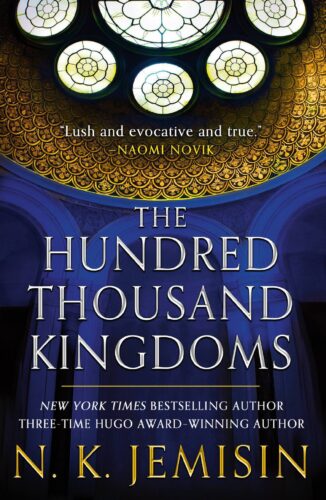I’ll be honest: I didn’t go into this expecting to like it. I’m friends with Brad Torgersen, Larry Correia, and others who argued that the Hugo awards had become too left-wing political, with candidacy based more on political and “intersectional” stances than on quality and entertainment value, and I know that Jemisin was one of the authors pushing back against that most vehemently. I was therefore half-expecting the book to be a “diversity hire” in novel form.
What I encountered, instead, was a very well-written fantasy novel based on a compelling and active mythology/theology (“active” in the sense that the deities are very present forces in the world), combined with a protagonist whose struggle for identity and autonomy at the center of several familial currents brushes right up against cosmic, almost eschatological concerns.
So, serves me right, I guess.
